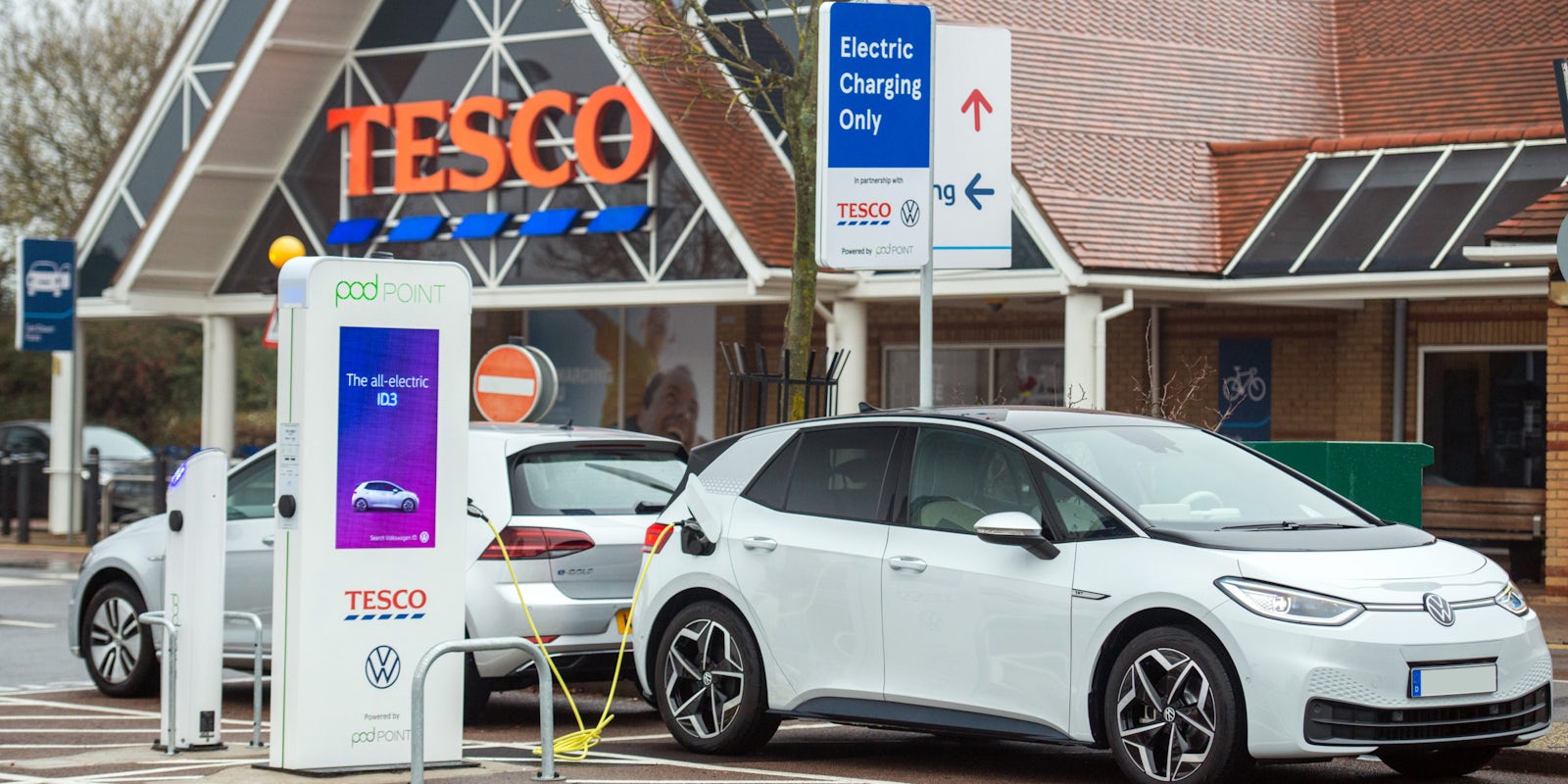Road tax on electric cars: what you need to know following the Autumn 2024 budget
October 30, 2024 by David Motton

Do electric cars pay road tax? It’s an important question for anyone looking to make the switch to an EV.
Until recently this question was simple to answer: “No.” However, that answer is soon to change, with the Autumn 2024 budget confirming what was long promised – that free road tax for electric vehicles is soon coming to an end.
Confused? Let us explain all about road tax, and how tax changes are about to affect electric car owners.
What is Road Tax?
Let’s get a pedantic point out of the way – road tax isn’t really road tax at all, it’s Vehicle Excise Duty (VED). The revenue from VED isn’t ringfenced to pay for roadbuilding and repairs, so to call it road tax is kind of misleading.
Instead, ‘road tax’ (as almost everyone calls it) is paid by most car owners as a revenue-raiser for the government, but also as a means of influencing drivers to choose low-emission cars.
How is road tax calculated?
When a car is first registered, 12 months of road tax is included in the on-the-road charges. How much you pay depends on how much carbon dioxide (CO2) a car emits. The more CO2 it pumps out, the higher the first-year charge.
Until 2025, first year road tax for electric cars cost nothing. However, as of 1 April, 2024, fully-electric cars will pay the lowest first year rate of £10 – and it’ll stay at that negligible amount until April 2029.
Rates for slightly more polluting vehicles are significantly more – cars emitting between 1-50g/km (currently only achievable by plug-in hybrids) will pay £110, while cars emitting between 51-75g/km will pay £130.
At the other end of the scale, cars that emit above 75g/km – again, a rate currently only achievable by plug-in hybrid vehicles – will see their rates doubled from the 2024 amount. That means a standard family hatchback, like a VW Golf, will pay £440 for their first year of tax. The most polluting vehicles will pay over £5,000.
After a year on the road the owner must pay again. This was made more simple in the 2025 budget – all cars, whether petrol, diesel or electric, must pay £190 a year. There was previously a £10 discount for hybrid vehicles, and electric cars used to be exempt, but now all types of cars pay the same amount. This rate is subject to change, but at the moment is set at £190.
There’s an extra differentiator based on your car’s price. Vehicles with a list price over £40,000 must pay an additional £410 for years 2-6 of ownership. Again, electric cars were previously exempt from this, but as of April 2025 they will need to pay them.
However, the Government has said it would consider raising the threshold for electric cars, noting that they’re usually more expensive to buy than petrol or diesel equivalents.
This all applies to cars registered since April 2017. Different rates apply to older cars, with carbon dioxide emissions being key to the cost for cars registered between March 2001 and April 2017.

Do you pay road tax on electric cars?
You will do soon. After 1 April, 2025, electric cars will attract a £10 first year tax rate and a £190 bill annually thereafter. In addition, they will no longer be exempt from the Expensive Car supplement, so vehicles with a list price over £40,000 will be liable for an additional £410 in years 2-6 of ownership.
Electric vehicles registered between 2017 and 2025 will attract the £190 annual rate, while electric vehicles registered before 2017 will pay road tax in Band B – set at £20 per year.
Electric vehicle tax remains far cheaper than a conventional or even a hybrid vehicle, as a way to incentivise people into buying new electric cars.
There are also big savings for anyone running an EV as a company car.

Road tax on electric cars FAQs
Do you pay road tax on electric cars over £40,000?
Not yet. Electric vehicles are exempt from the extra charge. That will no longer be the case from April 2025, when electric car owners will have to pay the extra £410. That’s the current rate and could change between now and April.
How much is road tax on an electric car?
For now, it costs nothing. There’s no road tax cost for an electric car when it first registered, or in subsequent years.
That comes to an end from April 2025. The first-year rate for electric cars will be £10. The regular annual road tax payments will jump from nothing to £190.
Do hybrid cars need to pay road tax?
Yes, hybrid car owners pay road tax. How much depends on the car’s emissions and when it was first registered.
Hybrids previously attracted very low rates of tax, but they’ve been increased from 1 April 2025. Hybrids emitting between 1-50g/km of CO2 will pay £110 for their first year of tax, while emissions between 51-75g/km will pay £130.
From the car’s first birthday onwards, hybrids pay £1890 per year, the same as a regular petrol, diesel or electric car.
There’s an extra £410 each year for five years on top of the standard rate for cars costing over £40,000 when new. It applies to hybrid cars as well as petrol and diesels.
Cars Change? Carwow!
Looking for a new set of wheels? With Carwow you can sell your car quickly and for a fair price – as well as find great offers on your next one. Whether you’re looking to buy a car brand new, are after something used or you want to explore car leasing options, Carwow is your one stop shop for new car deals.















